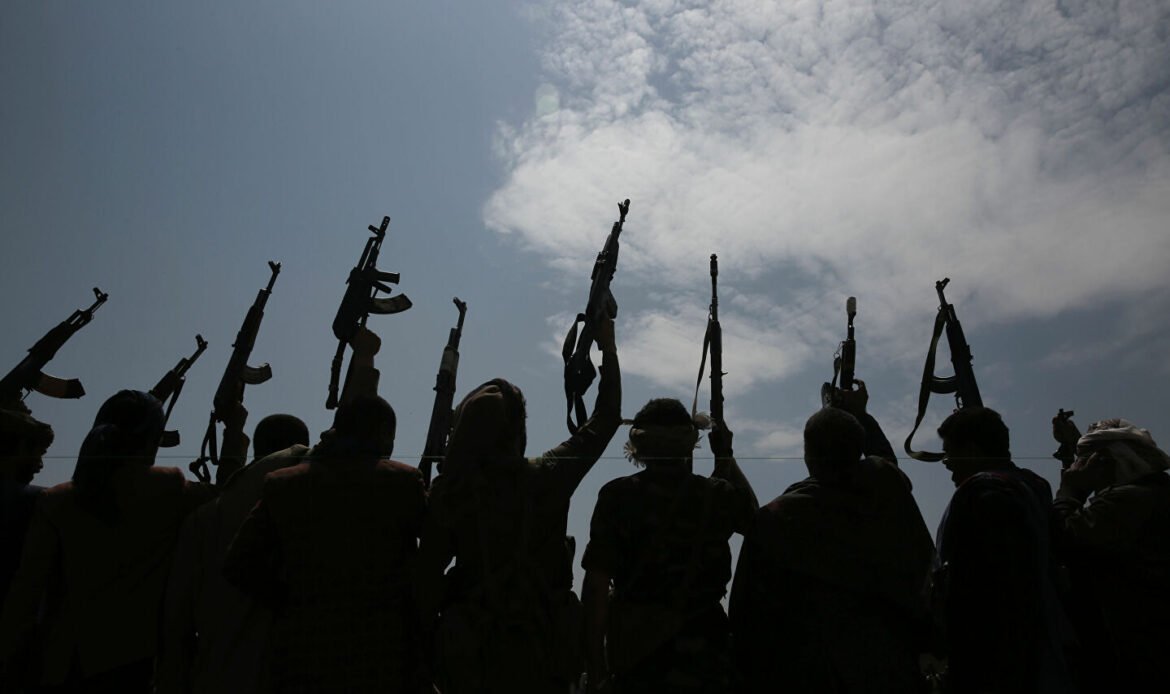It is not yet clear how Riyadh and Abu Dhabi will choose to respond following a Saturday rally organised by the Palestinian Islamic Jihad in the Gaza Strip, where participants chanted anti-Saudi slogans. But a Gulf official has hinted that it might hit where it hurts most – their pockets.
On Saturday, thousands of people took to the streets in the Gaza Strip to express their support for the Yemeni people and the Houthi rebels, following an alleged Saudi-led coalition airstrike on a detention centre in the province of Saada that led to the deaths of at least 80 people on Friday, accusations the coalition has denied.Participants in the rally chanted anti-Saudi slogans, including “Death to the house of Al Saud”, in protest against the country’s involvement in the Yemeni war, and that caused Riyadh and its closest ally — the United Arab Emirates — to boil over with anger.
Mounting Frustration
Messages of anger and frustration at Gazans’ support for the Houthis have been seen on many Twitter accounts of Saudi and Emirati nationals, but that’s not where it ends.

© AP Photo / Hani Mohammed
Over the years, Riyadh has been one of the Palestinians’ major donors and for the past two decades, it has provided them with more than $6.5 billion, of which at least $250 million was allocated to the United Nations Relief and Work Agency for Palestine Refugees, UNRWA. The UAE has also been a major donor and before it signed a normalisation agreement with Israel in September 2020, it used to inject more than $50 million a year into UNRWA. But the pact with the Jewish state and the criticism it prompted from the Palestinians made the Emirati leadership reconsider their cash flows.
No More Money?
Now, as Gazans take sides, opting to support the Houthis and, consequently, its patron Iran, the Gulf states’ main regional rival, the source says neither Riyadh nor the UAE will be “sitting idly by”. It is not yet clear what measures Riyadh and Abu Dhabi will be taking. It could be that their revenge will take the form of trimming their monetary assistance to the Palestinians. It could also be that it will be expressed in removing their diplomatic backing from their cause, but the official in the Gulf is certain: “The authorities are outraged and they will be hitting back”. In the Gaza Strip, Hamas – which governs the enclave – knows the repercussions Saudi rage can entail. News outlets associated with the Islamic group did not cover Saturday’s rally, instead they tried to sweep it under the rug. Officials from Hamas attempted to distance themselves from the event organised by their allies, the Palestinian Islamic Jihad, a group that’s believed to be linked to Iran.

© AP Photo / Adel Hana
Shortly after the event, Hamas released a statement, saying “the chants that have been heard on the Palestinian front [i.e. Death to Al Saud – ed.] do not reflect the steady policy of the movement that has always refrained from meddling in other countries’ internal affairs”. Similar messages have also been released by Fatah, a party that controls the West Bank. The Palestinian Authority condemned the Houthi rebels for targeting Saudi Arabia and the UAE and vowed support for their “Arab brothers”. Will these statements soothe tensions in the Gulf? History teaches that they might. In the 1990s, amid the bloody Iraq-Kuwait war, the Palestinians took the side of then-Iraqi leader Saddam Hussein, despite the financial and diplomatic assistance Kuwait had given to the Palestinians. Years later, the Palestinians apologised and the ice started to melt. But for that to happen with the Saudis and Emiratis, they will need more than just an apology. Both states consider Hamas and the Palestinian Islamic Jihad terrorist organisations, and for a rapprochement to happen they will want guarantees that these two have changed their ways.
Source: Sputnik



